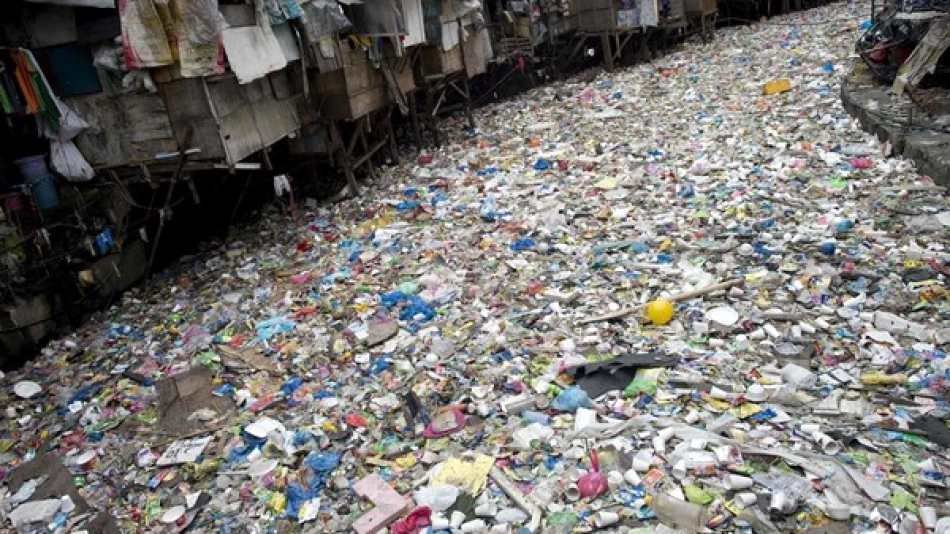
New Global Effort to Craft Landmark Plastic Pollution Treaty
Global Plastic Treaty Talks Enter Final Phase as Production Crisis Looms
Representatives from 180 nations are gathering in Geneva for what could be the last chance to forge the world's first comprehensive treaty to tackle plastic pollution—a crisis that threatens to triple global plastic consumption by 2060. With previous negotiations in South Korea failing in December, this 10-day session represents a critical juncture for addressing contamination that now reaches from ocean depths to human bloodstreams.
The Scale of the Crisis Demands Urgent Action
The numbers paint a stark picture of humanity's plastic addiction. Earth currently produces 460 million tons of plastic annually, with half designed for single use. Yet less than 10% gets recycled, creating a waste stream that the UN Environment Programme projects will grow by 50% by 2040.
Recent scientific breakthroughs have revealed the true scope of contamination. Microplastics and nanoplastics now circulate through human blood and organs, with health implications for current and future generations still largely unknown. A coalition of 450 scientists from 65 countries is closely monitoring these Geneva talks, emphasizing the urgency of action.
Economic Stakes Drive National Positions
The negotiations expose a fundamental tension between environmental necessity and economic reality. Major plastic-producing nations face potential economic disruption if production caps are implemented, while developing countries—often bearing the brunt of plastic pollution—demand accountability and financial support.
This dynamic mirrors previous international environmental agreements, from the Montreal Protocol on ozone depletion to recent climate accords, where economic interests initially clashed with environmental imperatives before consensus emerged.
The Production Cap Controversy
The treaty's most contentious element centers on whether to cap new plastic production—a provision that 96 countries endorsed at the UN Ocean Conference in Nice last June. Said Hamed, representing a 39-nation alliance of island states, identifies this as the primary sticking point, with many nations firmly opposed.
The resistance reflects the plastic industry's significant economic footprint and the challenge of transitioning entire industrial sectors. Unlike previous environmental treaties that targeted specific chemicals or practices, a plastic production cap would fundamentally reshape global manufacturing and consumption patterns.
Diplomatic Realities and Geopolitical Tensions
UN Environment Programme Executive Director Inger Andersen maintains optimism that Geneva can produce a treaty, despite the complexity. However, diplomatic sources acknowledge that broader geopolitical tensions are complicating multilateral cooperation—a challenge facing many international negotiations in the current global climate.
The draft text prepared by Ecuadorian diplomat Luis Vayas Valdivieso contains over 300 contentious points requiring resolution by August 14. This ambitious timeline reflects both urgency and pragmatic recognition that further delays could derail the process entirely.
Industry Influence and Environmental Advocacy
Environmental groups are pushing back against industry preferences for a treaty focused primarily on waste management rather than production limits. Greenpeace's Graham Forbes argues that governments must prioritize public interest over industry concerns in these final negotiations.
This tension reflects broader debates about corporate responsibility in environmental governance. The plastic industry's preferred approach—emphasizing recycling and waste management—avoids fundamental questions about production volumes and consumption patterns that many scientists argue are central to solving the crisis.
What Success or Failure Means
A successful treaty could establish the first global framework for plastic lifecycle management, potentially creating new markets for alternatives and recycling technologies while imposing costs on traditional plastic production. Failure, conversely, would leave individual nations to pursue fragmented approaches while plastic contamination accelerates.
The OECD's projection of tripled plastic consumption by 2060 without intervention underscores the stakes. Even a framework treaty without immediate binding targets could provide the institutional foundation for stronger measures as scientific understanding and political will evolve.
As Björn Beeler from the Swedish-based NGO network IPEN noted, negotiators appear determined to avoid further extensions, suggesting that some form of agreement—however imperfect—may emerge from Geneva's halls of diplomacy.
Most Viewed News

 Layla Al Mansoori
Layla Al Mansoori






